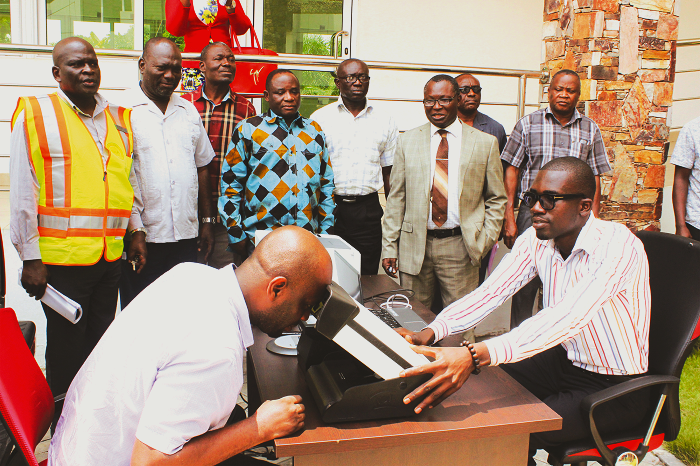
DVLA introduces Express Mobile services to doorstep of clients
The Driver and Vehicle Licensing Authority (DVLA) has launched an express mobile service to make its services easily accessible to drivers and potential drivers.
The initiative is primarily aimed at bringing eight driver’s licence-related services to the doorstep of corporate institutions, associations, tertiary institutions, organised drivers’ unions and other recognised groups, while eliminating the activities of middlemen also known as ‘goro’ boys.
Services to be offered in the DVLA Express Mobile Services (DEMOBS) include the acquisition of learner’s driver’s licence, renewal of learner’s driver’s licence, issuance of international driving permit, renewal of driver’s licence and issuance of duplicate licence.
The rest are replacement of driver’s licence, conversion of foreign driver’s licence and upgrading of driver’s licence.
Starting from August 8, 2016, the two mobile vans acquired for the project would start work in the Ellembelle District of the Western Region and the Afram Plains District of the Eastern Region.
From those two regions, the Greater Accra and Central Regions will take their turn.
Only for licences
Currently, the DVLA has 27 operational centres across the country, with some regions having only one centre, a situation that creates avenues for ‘goro’ boys to ply their trade because of the inadequate access to the services of the authority.
DEMOBS is, therefore, meant to complement the work of the authority’s 27 operational centres. However, the mobile vans would not conduct theory test and in-traffic tests required by the authority. It will also not work on roadworthy for vehicles.
The vans, fitted with eye screening and biometric data capturing equipment, will move to the doorsteps of customers upon request by an institution or group of persons to deliver services.
Eliminating goro boys
The Chief Executive of the DVLA, Mr Noble Appiah, who launched the initiative, said it formed part of measures to curb the activities of middlemen.
He said the fees would be the same except for service charges which would be added as a means to maintain and replace the vehicles.
Mr Appiah said the authority would add two extra vehicles by the end of the year and then ensure that by the middle of 2017, each region would have a van.
He said the service would be helpful for operators of huge fleet whose drivers were too busy to come to the DVLA.
He insisted that the service was not for excessive profit making but rather safety and accessibility.
Being a new service, he said there was the possibility of challenges cropping up but urged the public to report the problems, so it could be dealt with promptly.
How to access the service
There are two ways of accessing the mobile service.
The first option is by request, where an institution or group of persons request for the service. Here, both the authority and the institution will agree on a date and time and a vehicle with all the necessary equipment would move to the institution to deliver the services required.
At least 20 people are required before the DVLA can offer the service.
The service can also be accessed at the district level where the authority would select a district and publish a location and date for the public to patronise the service.
